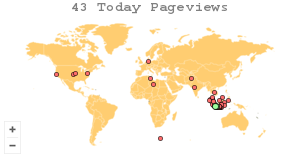PANDANGAN ISLAM TERHADAP MANAJEMEN RISIKO MELALUI TELADAN KISAH NABI YUSUF AS
DOI:
https://doi.org/10.47498/bashair.v3i1.989Keywords:
Islamic Perspective, Risk ManagementAbstract
In carrying out the activities of daily life humans will always be faced with various possible risks either directly or indirectly. The risks that occur in life can be positive (beneficial risk) or negative (detrimental risk), hence humans are encouraged to plan carefully to minimize any possible negative risks that can harm themselves. In addition to minimizing the possibility of negative risks they also recommended to be able to overcome any negative risk with various actions called Risk Management.
References
Darmawi, H. (2006). Manajemen Risiko (Cet. X ed.). Jakarta: Bumi Aksara.
Departemen Agama RI. (1989). Al-Qur’an dan Terjemahannya. Semarang: Toha Putra.
Hanafi, M. M. (2006). Menejemen Risiko. Yogyakarta: UPP STIM YKPN.
Idroes, F. N. (2008). Manajemen Risiko Perbankan. Jakarata: Rajawali Pers.
Irham, F. (2013). Menejemen Risiko, Teori, Kasus, dan Solusi. Bandung: Alfabeta.
Salim, A. (2000). , Asuransi dan Manajemen Risiko (Cet. VI ed.). Jakarta: PT. Raja Grafindo Persada.
Sarwono, J. (2006). Metode Penelitian Kuantitatif dan Kualitatif. Yogyakarta: Graha Ilmu.
Sukarna. (2011). Dasar–Dasar Manajemen. Bandung: Mandar Maju.
Sule, E. T., & Saefullah, K. (2005). Pengantar Manajemen (Cet. 3 ed.). Jakarta: Kencana.
Zed, M. (2004). Metode Penelitian Kepustakaan. Jakarta: Yayasan Obor Indonesia.
Downloads
Published
Issue
Section
License
Authors who publish articles in Basha'ir: Jurnal Studi Al-Qur'an & Tafsir agree to the following conditions:
- The author retains copyright and grants the Basha'ir Journal the right from the first publication with the work simultaneously licensed under a Creative Commons Attribution-ShareAlike 4.0 International (CC BY-SA 4.0) license that allows others to make changes, adjust and build on the work with recognition of the author's work and initial publication in the Journal.
- Authors are allowed to copy and redistribute published versions of works in journals (for example, posting them to institutional repositories or publishing them in a book), with recognition of their initial publication in Basha'ir: Jurnal Studi Al-Qur'an & Tafsir.
- Authors are allowed and encouraged to post their work online (for example, in institutional repositories or on their websites) before and during the submission process, as it can lead to productive exchanges, and increase citations of published works






